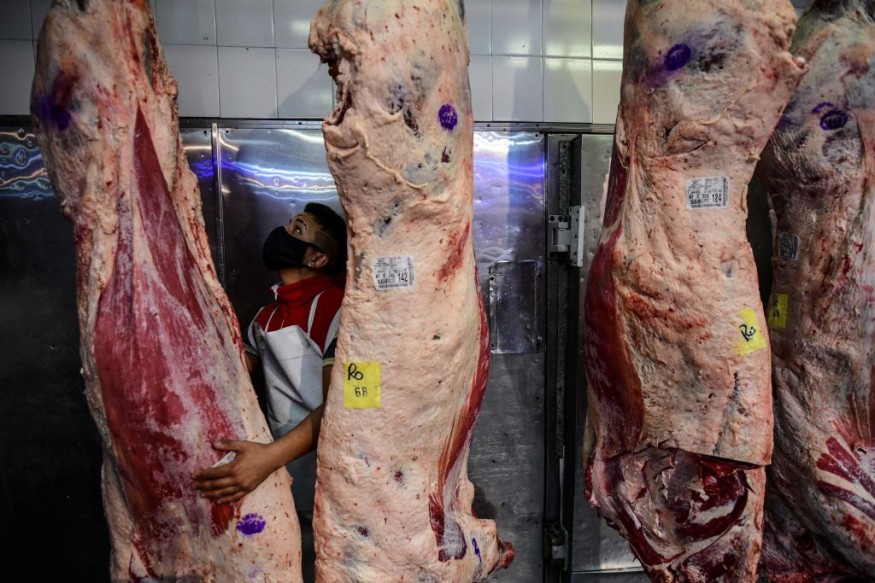Argentina Extends Export Ban on Some Beef Cuts to Guarantee Domestic Supply, Lower Local Prices

Argentina on Monday extended an export ban on some of its famous beef cuts until next year to address the surge of local beef prices.
Officials said the sale of seven beef cuts (asado con o sin hueso, falda, matambre, nalga, paleta, tapa de asado, and vacío) to other countries is prohibited until December 31, 2023.
Bloomberg reported that the move was part of the country's "unconventional approach" to tame meat prices for local consumers.
"The measures contribute to generating a balance between the Argentine market and the export of meat products," Argentina's government said.
The government added that export administration is established for several "beef cuts that are preferred by the Argentine market and for mass consumption."
As the government of Argentina acts to lower meat prices for local customers, reports noted that the initial move to ban exports of seven beef cuts has failed.
According to reports, meat prices surge 48 percent annually in the greater Buenos Aires area. Government data showed that in November, prices on some cuts in the country rose by double-digits on a monthly basis.
The Argentine government also prohibited exporters from shipping full cattle carcasses and half carcasses, among other categories, for the same period.
READ NEXT : Elizabeth Holmes: Theranos Founder Guilty of 4 Fraud Counts as Jury Remains' Deadlock' on Three Counts
Argentina Beef Export Ban
In May last year, Argentina's government imposed a 30-day ban on exporting beef to other countries. The ban was also an attempt from the government to guarantee domestic supply and lower prices.
The U.S. Department of Agriculture also announced the 30-day ban imposed by Argentina that issued Resolution 75/2021. However, the said resolution exempts some countries where Argentina has negotiated quotas for beef exports, such as the U.S., E.U., and Colombia.
The impact of COVID-19 has been significant in Argentina. In 2020, Argentina's GDP declined by about 10 percent.
According to Argentina's national statistics agency, INDEC, general inflation in the greater Buenos Aires region rose to 44.7 percent from April 2020 to April 2021. Because of the inflation, meat prices in Argentina rose by 64.7 percent.
Implications of Argentina's Beef Export Ban
According to Borgen Magazine, the beef export ban in Argentina affects beef prices internationally and domestically.
After the 30-day ban was imposed in May, beef prices in Argentina reportedly reached up to $53 per pound of the cheapest cut. At the time of the ban, meat prices had increased more than 60 percent in the previous year.
Argentina's primary exported crops, namely corn, soybeans, and beef, had contributed significantly to the country's export earnings in the past years.
But in 2017-2018, Argentina experienced "the worst farming season" that limited the production of corns and soybeans, making Argentina's beef its highest-grossing product.
Argentine beef is a part of the country's national identity, as Argentina produces mostly "top-quality" meat from grass-fed cattle.
This article is owned by Latin Post.
Written by: Joshua Summers
WATCH: Argentina's Beef Business is a Key Component to Its Culture - From CGTN America
Subscribe to Latin Post!
Sign up for our free newsletter for the Latest coverage!

















